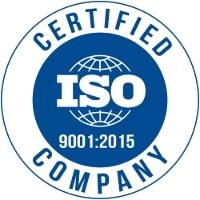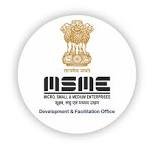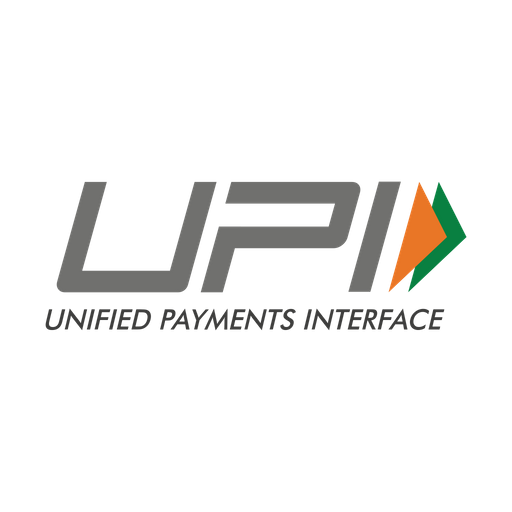
ISO Certificate
ISO Certification - An Introduction
ISO certification is a seal of approval from a third-party body that a company or organisation runs to one of the international standards developed and published by the International Organisation for Standardisation (ISO). ISO is an independent, non-governmental international organisation that brings together experts to share knowledge and develop international standards that support innovation and provide solutions to global challenges.
There are over 22,000 ISO standards published in a wide range of areas, including quality management, environmental management, food safety, information security, and social responsibility. ISO certification is voluntary, but it can be a valuable way for organisations to demonstrate their commitment to quality, safety, and efficiency.
Objective of ISO certification
The aim of getting ISO certification is to advance the improvement of standardisation in the technology of an organisation.
Advantages of ISO Certification
- International credibility: ISO Certification plays a vital role in helping the organisation to build credibility in overseas business.
- Customer Satisfaction: ISO standards are intended to make organisations to serve their customers in a better way that would simultaneously increase customers’ satisfaction
- Government Tenders: ISO Certification is quite essential to bid for Government Tenders.
- Business Efficiency: Functional efficiency of organisations is improved by obtaining ISO Certification. SOP (Standard Operating Procedures) and work instructions can be developed with the help of ISO Certification Agency. Implementation of ISO in an organisation manages the resources efficiently.
- Product Quality: By obtaining ISO Certification, the product quality matches up the international standards, it will reduce the risk of product order rejections that may occur due to the flawed products.
- Marketability: ISO Certification improves the business credibility, and it helps the business marketing directly.
ISO Registration Documents Required
- Application form
- Scope of certification
- Quality management system (QMS) documentation
- Records
- Management review minutes
- Internal audit reports
- Corrective and preventive action (CAPA) records
- Organisational chart
- Employee training records
- Supplier assessment reports
- Customer satisfaction surveys
- Id Proofs
ISO Certification Process Step By Step:
The general process for ISO certification is quite complex, its explained in detailed below:
Submit Application
Begin by submitting an application form, as required by the chosen ISO registrar. This application outlines the rights, obligations, liability issues, confidentiality, and access rights of both the entrepreneur and the certification body.
Document Review
The ISO certification body thoroughly reviews your quality manuals and related documents, examining the policies and procedures in your organisation. This analysis aids in locating any discrepancies between your present procedures and ISO standards.
Pre-assessment
The pre-assessment is an initial review of your organisation's Quality Management System (QMS) to identify weaknesses or omissions. The ISO registrar provides an opportunity to rectify these deficiencies before the formal registration assessment.
Action Plan
Upon receiving feedback from the ISO registrar regarding identified gaps, you, as the applicant or entrepreneur, must create an action plan. This plan should outline the necessary tasks to align your QMS with the ISO standards. It may involve training employees to work efficiently and adhere to ISO standards for quality and efficiency.
Onsite Inspection or Audit
In order to audit the modifications made inside your firm, the ISO registrar conducts an on-site inspection. During this audit, any deviations from ISO standards are noted as audit findings, categorised as either minor non-conformances or major non-conformances.
- Minor Non-conformance: Involves minor infractions or minor system failures not meeting ISO standards
- Major Non-conformance: Relates to issues where non-conforming products might reach customers or where a breakdown in the quality system leads to inefficiencies in meeting ISO requirements.
End Of Audit
The registration process proceeds only after addressing and verifying the closure of all significant non-conformities. This may require a re-audit of affected areas, incurring additional costs.
- Note: Minor non-conformities require corrective action plans and are typically closed during the first surveillance.
Obtain ISO Certification
The registrar issues the ISO certification following the resolution of any non-conformities and the documentation of findings in the ISO audit report.
Applicable Fee for ISO Certification
Fee for ISO certification in India varies from organisation to organisation. The ISO certification body will compute the fee for ISO certification by considering the below mentioned different parameters:
- Size of an organisation
- Number of employees
- Processes of Organization
- Level of risk associated with the scope of services of the organisation
- The complexity of the management system
- The number of working shifts
ISO Certification Processing Time
ISO certification processing time also varies from organisation to organisation. The ISO certification body will notify the details processing time for completion of ISO certification after assessing the size of an organisation.
Quality:
- ISO 10004:2012 Customer satisfaction
- ISO 10006:2017 Projects
- ISO 13485:2016 Medical devices
- ISO/TS 16949:2009 Automotive
- ISO 17582:2014 Electoral organizations
- ISO 18091 Local government
- ISO 19443:2018 Nuclear energy
- ISO 20001 Educational organizations
- ISO/TS 22163:2017 Business management system requirements for rail organizations
- ISO/TS 29001 Petroleum, petrochemical, and natural gas industries
- ISO/IEC 90003 Software engineering
Industry
- ISO 14298:2013 Graphic technology – Management of security printing processes
- ISO 15378:2017 Primary packaging materials for medicinal products
- ISO 16000-40 Indoor air
- ISO 34101-1 Sustainable and traceable cocoa
Environment and energy
- ISO 14002-1 Environmental management systems-a guide for applying the 14001 framework
- ISO 14004:2016 Environmental management systems-General guidelines on implementation
- ISO 14005:2010 Environmental management systems-guidelines for phased implementation
- ISO 14006:2011 Environmental management systems-Guidelines for incorporating eco-design
- ISO 14009 Environmental management systems-guidelines for incorporating redesign of products and components to improve material circulation
- ISO 50001:2018 Energy management systems
- ISO 50004:2014 Energy management systems-guidelines for implementation, maintenance, and improvement
Services
- ISO 21101:2014 Adventure tourism safety management
- ISO 21404:2018 Tourism and related services: Sustainability management system for accommodation establishments
- ISO 24526 Water efficiency
- ISO 20121:2012 Event sustainability
- ISO/IEC 20000-1: 2011 Information technology-service management
General Management
- ISO 19600:2014 Compliance management systems
- ISO 26000 Social responsibility
- ISO 30301:2011 Information and documentation
- ISO 30401 Human resource
- ISO 31000 Risk management
- ISO 37001:2016 Anti-bribery
- ISO 37002 Whistleblowing
- ISO 37101:2016 Sustainable development in communities
- ISO 37301 Compliance management
- ISO 41001 Facility management
- ISO 44001:2017 Collaborative business relationship management
- ISO 44002 Guidelines on the implementation of ISO 44001
- ISO 55001:2014 Asset management
- ISO 55002:2014 Guidelines for the application of ISO 55001
- ISO 56002 Innovation management
Safety and security
- ISO 22000 Food safety management systems
- ISO 22004:2014 Guidance on the application of ISO 22000
- ISO 10377:2013 Consumer product safety
- ISO 10393:2013 Consumer product recall
- ISO 18788:2015 Private security operations
- ISO 22301:2012 Societal Security-Business continuity management systems
- ISO 24518:2015 Crisis management of water utilities
- ISO 28007-1:2015 Ships and marine technology
- ISO 29001:2012 Road traffic safety
- ISO/DIS 45001 Occupational health and safety
- ISO/IEC 80079-34:2011 Explosive atmospheres
- ISO/NP 35001 Laboratory bio-risk
- ISO/TS 34700:2016 Animal welfare management
Information technology
- ISO/IEC 20000-1 Service management Part 1
- ISO/IEC 20000-2 Service management Part 2
- ISO/IEC 27003:2017 Security techniques
- ISO/IEC 20000-1 Enhancement to ISO/IEC 27001 for privacy management
- ISO/IEC 27010:2015 Information security management for inter-sector and inter-organizational communications
- ISO/IEC 27013:2015 Guidance on the integrated implementation of ISO/IEC 27001 and ISO/IEC 20000-1
- ISO/IEC 90003:2014 Software engineering
- ISO/IEC DIS 19770-1 IT asset management









